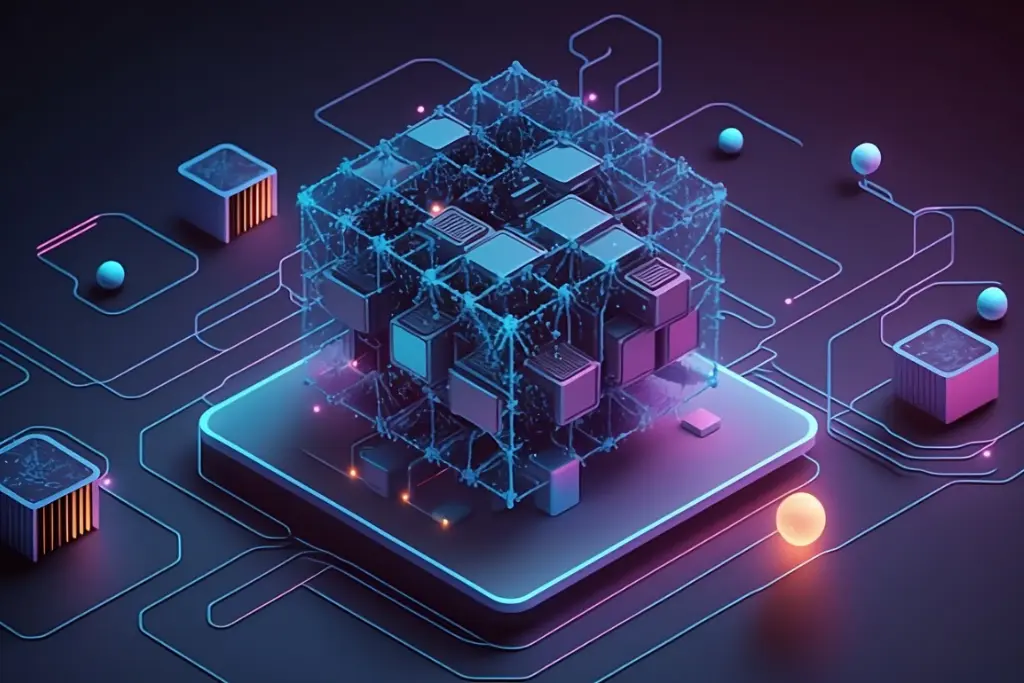
The core of cryptocurrencies is blockchain technology. It is an immutable, shared ledger that tracks asset balances over a network and makes transactions easier.
A prevalent misperception holds that cryptocurrency and blockchain technology are interchangeable. In a Casper Labs poll of 603 corporate executives in the US, UK, and China, 53% of participants said that the terms "blockchain" and "crypto" were equivalent.
This is not at all how it is. Blockchain technology has numerous applications, one of which is cryptocurrency.
Any kind of asset, including intangibles like copyright and patents and tangibles like real estate, automobiles, and supply chains, may be tracked using a blockchain ledger.
Since anything of value can be monitored and exchanged on a blockchain, more companies are starting to see the benefits of implementing the technology, whether it's to save costs, streamline processes, or expand their client base internationally.
Features of Blockchain
The term distributed ledger technology (DLT) is frequently used to describe blockchains. A blockchain might have a public or private nature.
A centralized operator controls who can join and conduct transactions on a private blockchain. Public blockchains lack authorization and are decentralized.
Understanding blockchain's fundamentals is not too difficult. In essence, it is a system for data storage that arranges data into blocks that are connected to one another chronologically to form an irreversible chain.
The distinctive features of blockchain technology set it apart from other data storage platforms. Let's examine each one individually.
Applications of Blockchain Technology in Real Life

Studying real-world applications of blockchain technology is the best approach to gain an understanding of it. Here are some instances of how businesses and financial institutions will use blockchain technology in 2024:
1. Watford Football Club to Sell Blockchain Stake
The English football team Watford FC declared in June 2024 that it will offer investors digital tokens representing 10% of the club.
The primary goal of providing Watford FC shares as tokens on a blockchain, according to the club, was to appeal to “a far broader range of investors.”
Conventional fundraising methods such as venture capital funding and initial public offerings (IPO) are either geographically limited or inaccessible to certain groups of people.
2. US Treasury Tokenization with BlackRock
Blockchain technology offers significant benefits, one of which is the tokenization of real-world assets (RWA).
The world's largest asset manager, BlackRock, launched BUIDL, the first tokenized fund, on the Ethereum (ETH) blockchain in March 2024. A fund that invests all of its assets in cash, US Treasury notes, and repurchase agreements is represented by BlackRock's BUIDL token.
3. Supply Chain Management Powered by Blockchain and DHL
Blockchain is marketed as the logistics industry's game-changing solution. Because of its immutable and transparent characteristics, firms may securely communicate with middlemen in supply chains.
To this end, the tech firm Accenture and the multinational logistics business DHL are working together to create a prototype blockchain-based serialization system that will aid in the tracking and authentication of medications as they move through the supply chain.
Additionally, in an effort to improve supply chain efficiency, DHL and Hewlett Packard Enterprise are developing an invoicing system based on blockchain technology.
Read Also: Blockchains for NFTs You Should Know
Is a Blockchain Safe?
-
Do blockchains have security? Can someone hack a blockchain? Those who are unfamiliar with the technology may be wondering these things.
-
Unfortunately, that is correct. It is possible to hack and compromise blockchains. In actuality, though, a number of variables can combine to make one blockchain impenetrable while leaving the other open to attack.
-
Consider Bitcoin (BTC) as an illustration. A public blockchain powers Bitcoin. Since public blockchains like Bitcoin are decentralized and permissionless, anybody can utilize them.
-
Thousands of computers known as miners, dispersed throughout the globe, power Bitcoin. New blocks are added to the Bitcoin chain and transactions are validated by miners. An attacker needs to possess 51% of the network's hashing power in order to compromise a public blockchain, such as Bitcoin.
-
An attacker can change previous transactions and start new ones at will if they obtain 51% of a network's hashing power.
-
Since there is a sizable, diversified, and international community of Bitcoin miners, it is very difficult for attackers to work together to compromise the Bitcoin chain. Additionally, research indicates that hackers are not likely to make money trying to breach the Bitcoin blockchain. A 51% attack on Bitcoin, according to reports, would cost more than $20 billion every hour.
-
Therefore, the ability to hack a blockchain ultimately relies on the specific blockchain in issue.
Rules Concerning Blockchain Technology
)
-
Because of its connections to the cryptocurrency sector, which has seen its fair share of frauds, money laundering, hacks, and usage on the dark web during the past 10 years, blockchain technology frequently receives a poor rap.
-
Governments all over the globe are developing new legislative frameworks targeted at regulating cryptocurrencies in order to stop the misuse of cryptocurrencies and blockchain technology.
-
Future blockchain applications will be impacted by upcoming laws and regulations.
-
Stricter regulations might lead to the adoption of blockchain technology for identity management, accounting, and supply chain management in a private, permissioned, and legal environment.
-
In the meantime, decentralized blockchains like Ethereum and Bitcoin will prosper thanks to rules that favor cryptocurrencies.
-
Legislators are still figuring out how to control virtual currency. For the first time ever, the U.S. House of Representatives passed the crypto bill, FIT21, in May 2024.
-
The FIT21 bill seeks to establish precisely what cryptocurrencies are and who in the government is in charge of regulating them.
In summary, what is the future of blockchain technology?
Innovation in the blockchain space is happening very quickly. With the advent of new encryption technologies like zero-knowledge proofs (ZK), blockchain security will increase.
Elsewhere, developers are experimenting with layer two (L2) blockchains and sharding to overcome the scalability issues that many public blockchains face. In terms of throughput, cost, and dependability, public blockchains could rival established payment network processors like Visa and Mastercard if they are effective.
A shift away from monolithic blockchain design has also been observed in the blockchain sector in recent years. Modular blockchains are becoming a more popular idea.
